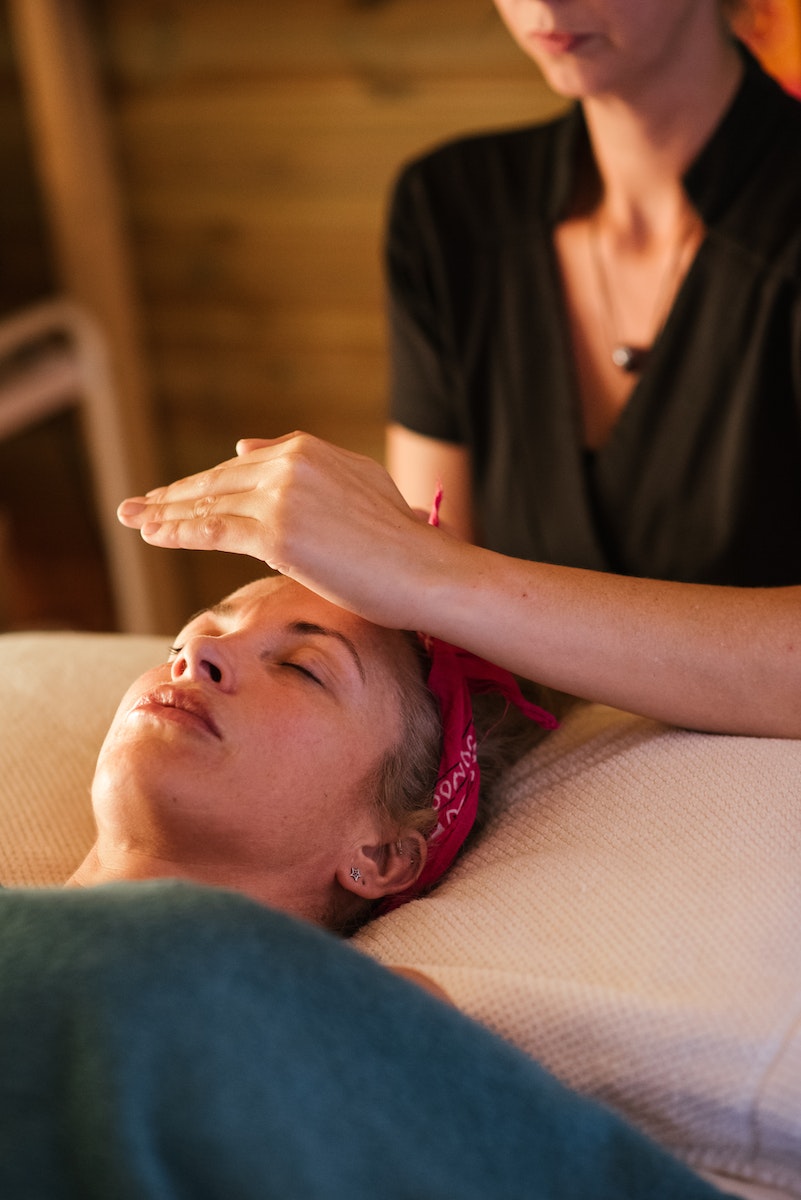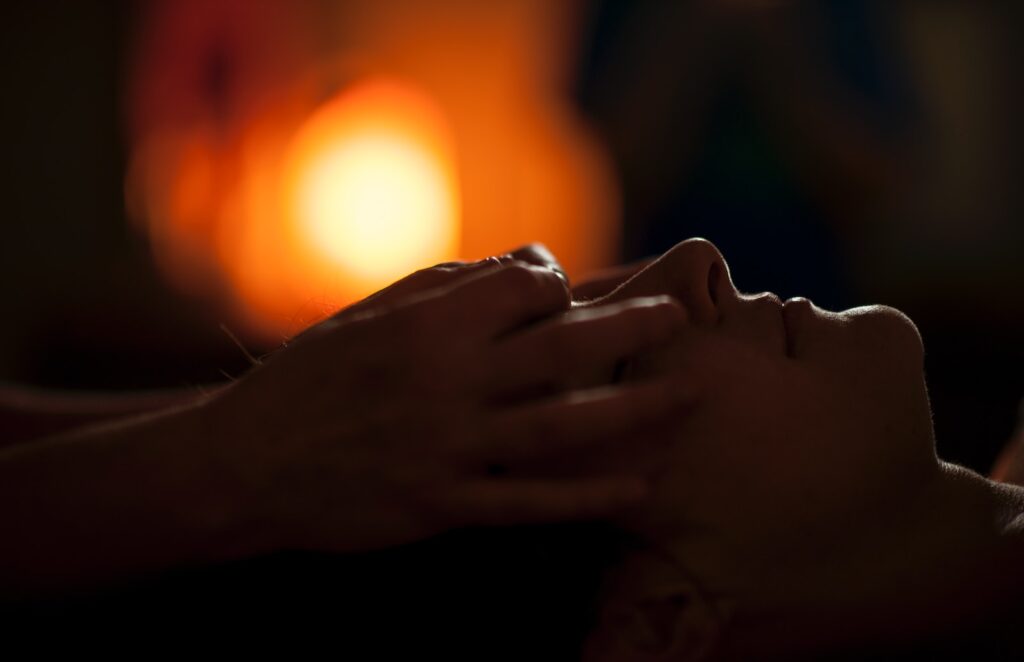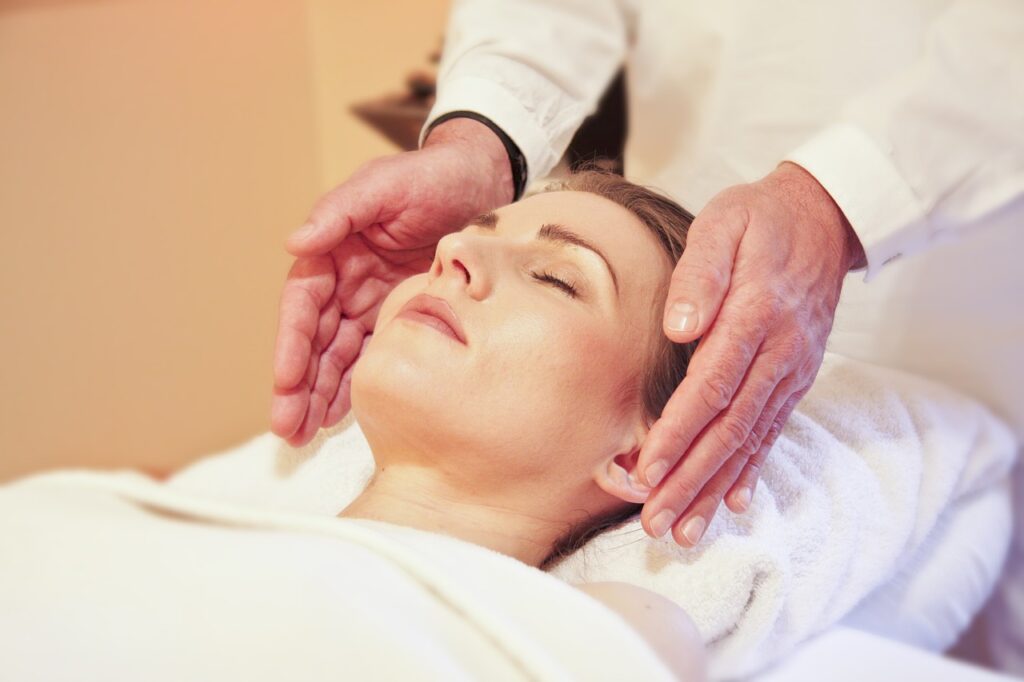Reiki Healing Guide: Channeling Universal Life Force Energy

Reiki, a powerful and ancient healing technique, has gained immense popularity in recent years for its ability to channel universal life force energy. In this comprehensive guide, we will delve into the history, techniques, and step-by-step process of Reiki healing. Discover the wonders of this holistic practice and embark on a journey to harness the positive energy that surrounds us.
Introduction to Reiki
Reiki, pronounced as “ray-key,” is a holistic healing practice that originated in Japan in the early 20th century. At its core, Reiki is based on the concept of channeling universal life force energy to promote healing and balance in the body, mind, and spirit.
Understanding Universal Life Force Energy
Reiki is rooted in the belief that there is a universal life force energy that flows through all living things. This energy is sometimes referred to as “Ki” in Japan, “Chi” in China, or “Prana” in India. It is the essence of life itself and is present in every living being, connecting us to the vast energy of the universe.
The Origins of Reiki
The history of Reiki is shrouded in legend and mysticism. It is said to have been rediscovered by Dr. Mikao Usui, a Japanese Buddhist, in the early 20th century during a spiritual quest on Mount Kurama. Dr. Usui developed a system of healing that involved the laying on of hands to transmit this universal energy, leading to the birth of Reiki as we know it today.
For a deeper exploration of the history and origins of Reiki, you can refer to our Crystal Guide which provides insights into the mystical aspects of this ancient practice.
The Five Reiki Principles
Central to Reiki are the five guiding principles, also known as the Five Reiki Principles or the Five Reiki Precepts. These principles serve as a moral and spiritual code for Reiki practitioners.
Embracing the Guiding Principles
The Five Reiki Principles are:
- Just for today, I will not be angry.
- Just for today, I will not worry.
- Just for today, I will be grateful.
- Just for today, I will do my work honestly.
- Just for today, I will be kind to every living thing.
These principles encourage practitioners to live in the present moment, cultivate gratitude, and foster kindness and compassion toward all beings.
To deepen your understanding of these principles and how they can positively impact your life, explore our Amulet Necklaces Review for spiritual jewelry that can serve as a reminder of these guiding ideals.

Achieving Harmony and Balance
By embracing these principles, individuals can attain a state of inner harmony and balance. This inner equilibrium is believed to be essential for effective Reiki healing.
For those interested in enhancing their sense of balance and harmony, we recommend exploring our guide on Chakra Wealth and DNA for insights into aligning your energy centers.
The Reiki Healing Process
Receiving a Reiki session is a unique and deeply relaxing experience. Before delving into the techniques used in a Reiki session, it’s important to understand what to expect during this holistic healing process.
Preparing for a Reiki Session
Before a Reiki session, it’s advisable to wear comfortable clothing and remove any jewelry or accessories that might interfere with the flow of energy. You will typically lie down fully clothed on a massage table, while the Reiki practitioner gently places their hands on or near your body.
What to Expect During a Session
During a Reiki session, you may experience sensations of warmth, tingling, or relaxation as the practitioner channels energy to different parts of your body. The session is usually accompanied by soothing music and a peaceful ambiance, creating an environment conducive to healing and relaxation.
For those interested in enhancing their relaxation techniques during a Reiki session, consider exploring our Best Incense Review to create an even more serene atmosphere.
In the next section, we will explore the various techniques used in Reiki healing, including traditional hand positions, distance healing, and chakra balancing.
Reiki Techniques
Reiki employs several techniques to facilitate the flow of universal life force energy and promote healing. These techniques can be adapted to suit individual needs and preferences.
Traditional Hand Positions
In traditional Reiki sessions, practitioners use a set of specific hand positions to channel energy to different areas of the body. These positions cover the major energy centers, or chakras, and can be tailored to address specific physical or emotional issues.
For those interested in enhancing their Reiki practice with crystals, refer to our Crystal Set Review for insights into how crystals can complement traditional hand positions.
Distance Healing
One of the remarkable aspects of Reiki is its ability to transcend physical boundaries. Distance healing, also known as remote healing, allows Reiki practitioners to send healing energy to individuals who are not physically present. This technique has been particularly valuable in recent times when in-person sessions may not be possible.
Chakra Balancing
Chakras are energy centers within the body, and Reiki is often used to balance and harmonize them. By focusing energy on the chakras, practitioners aim to remove blockages and restore the natural flow of energy throughout the body.
For a more in-depth exploration of chakra balancing with crystals, visit our Crystal Pendulums page for guidance on combining these powerful tools.
The Benefits of Reiki
Healing
Reiki offers a wide range of benefits for individuals seeking physical, emotional, and spiritual healing and well-being.
Physical Healing
In the realm of physical health, Reiki has been reported to promote relaxation, reduce pain and discomfort, and accelerate the body’s natural healing processes. Many people turn to Reiki as a complementary therapy for various ailments.
For those curious about the role of crystals in physical healing, our Healing Crystals for Beginners guide provides valuable insights.
Emotional and Mental Well-being
On an emotional and mental level, Reiki can help alleviate stress, anxiety, and depression. It fosters a sense of calm and inner peace, allowing individuals to better cope with life’s challenges.
For a holistic approach to emotional well-being, consider exploring our Oracle Deck Review to tap into intuitive guidance.
Reiki and Spiritual Growth
Beyond its physical and emotional benefits, Reiki is a powerful tool for spiritual growth and self-discovery.
Connecting with Your Inner Self
Reiki encourages individuals to connect with their inner selves and tap into their innate wisdom and intuition. It can be a profound journey of self-exploration and self-improvement.
For those seeking a deeper connection with their inner selves, explore our guide on Soulmate Astrology to gain insights into your spiritual journey.
Expanding Consciousness
Many Reiki practitioners report a heightened sense of awareness and expanded consciousness. This spiritual growth can lead to a deeper understanding of the interconnectedness of all life.
For those interested in expanding their consciousness through meditation, our guide on Astral Projection Exploration provides valuable techniques.

How to Become a Reiki Practitioner
If you are drawn to the healing power of Reiki and wish to become a practitioner yourself, there are steps you can take to embark on this path.
Receiving Attunements
To become a certified Reiki practitioner, you must receive attunements from a qualified Reiki Master. These attunements open your energy channels, allowing you to channel Reiki energy effectively.
For those looking to unlock their potential as a Reiki practitioner, visit our Ancient Illuminati Review for insights into the secrets of energy attunement.
Practicing Self-Healing
Becoming proficient in Reiki often begins with self-healing. Practicing Reiki on yourself can enhance your skills and deepen your connection with the energy.
For those interested in honing their mentalism abilities alongside Reiki, our guide on Master Mentalism Secrets provides a unique perspective.
Offering Healing to Others
Once you have gained confidence and experience, you can offer Reiki healing to others. Many practitioners find immense fulfillment in helping others on their healing journeys.
For those seeking to amplify their healing abilities, explore our Energy Healing Basics guide for foundational knowledge.
Ethical Considerations in Reiki
While Reiki is a powerful and benevolent healing practice, it is essential to approach it with ethical considerations in mind.
Respecting Free Will
Reiki should never be forced upon anyone. It is important to obtain informed consent from individuals before offering a Reiki session.
Ensuring Informed Consent
Before a session, explain the process to the recipient and ensure they are comfortable with the treatment. Transparency and respect for individual choices are fundamental principles of Reiki ethics.
For a deeper understanding of ethical practices in the realm of healing, refer to our Prayer Beads Review for insights into mindfulness and intention setting.
Combining Reiki with Other Healing Modalities
Reiki can be seamlessly integrated into other holistic healing modalities, creating a comprehensive approach to wellness.
Integrating Reiki into Holistic Healing
Many individuals combine Reiki with practices such as yoga, meditation, acupuncture, and massage therapy to enhance their overall well-being.
For those interested in expanding their knowledge of ancient wisdom and healing, explore our Astrological Guide to Health for insights into the alignment of cosmic energies and well-being.
Reiki in Everyday Life
You don’t have to be a certified Reiki practitioner to benefit from its healing energy. Reiki can be incorporated into your daily life in simple yet profound ways.
Using Reiki for Self-Care
Taking a few moments each day to practice self-Reiki can reduce stress, increase vitality, and promote overall balance.
For individuals interested in enhancing their self-care practices, explore our Spiritual Salt guide for insights into purification and relaxation.
Bringing Reiki into Your Routine
Incorporating Reiki principles, such as gratitude and kindness, into your daily routine can lead to a more harmonious and fulfilling life.
For those curious about the transformative power of moon reading and discovering passions, visit our guide on Unlocking the Potential of Moon Reading for a journey of self-discovery.

Frequently Asked Questions
What is the history of Reiki?
Reiki’s history is deeply rooted in Japan, where it was rediscovered by Dr. Mikao Usui in the early 20th century. It has since evolved into a global healing practice. To explore the mystical aspects of Reiki further, refer to our Crystal Ball Comparison for insights into divination.
Can anyone learn Reiki?
Yes, Reiki is accessible to anyone with a sincere desire to learn and practice it. Reiki training is widely available, and attunements can be received from qualified Reiki Masters. For those interested in exploring other forms of divination, visit our Best Tarot Sets guide for a journey into intuitive reading.
How does Reiki work on a scientific level?
While the exact mechanisms of Reiki are still a subject of scientific study, it is believed to influence the body’s energy field and promote relaxation and healing. To delve into the science behind energy healing, explore our Astral Projection vs. Lucid Dreaming guide for insights into altered states of consciousness.
Are there any side effects of Reiki?
Reiki is generally considered safe and non-invasive, with no known harmful side effects. Individuals may experience relaxation and improved well-being after a session. To enhance your well-being further, consider exploring our SlimCrystal Bottles Review for a holistic approach to hydration.
Can Reiki heal emotional trauma?
Reiki can be a valuable tool in addressing emotional trauma by promoting relaxation, emotional release, and a sense of peace. However, it should not replace professional mental health care when needed. For a deeper exploration of emotional healing, visit our Mystery School Code Review for insights into ancient wisdom and transformation.
Conclusion
Reiki is a profound healing practice that empowers individuals to tap into the universal life force energy for physical, emotional, and spiritual well-being. By following the Five Reiki Principles and embracing the techniques and ethical considerations, you can embark on a transformative journey of healing and self-discovery.
